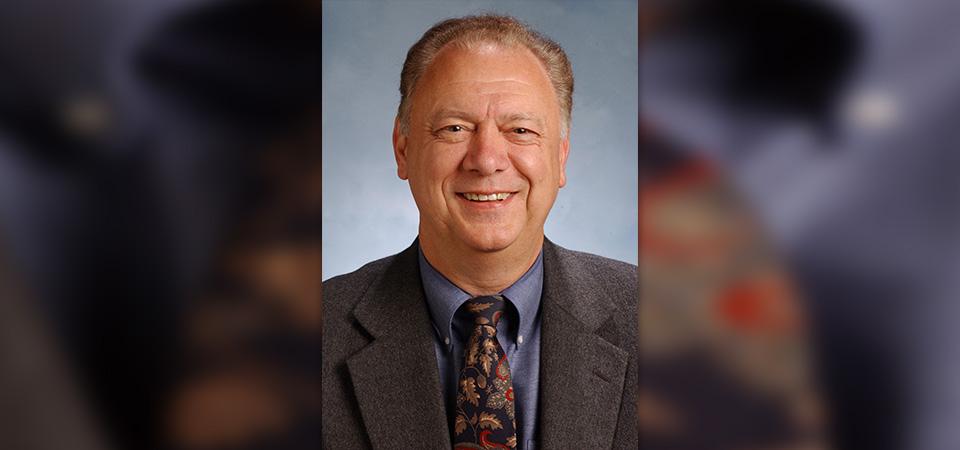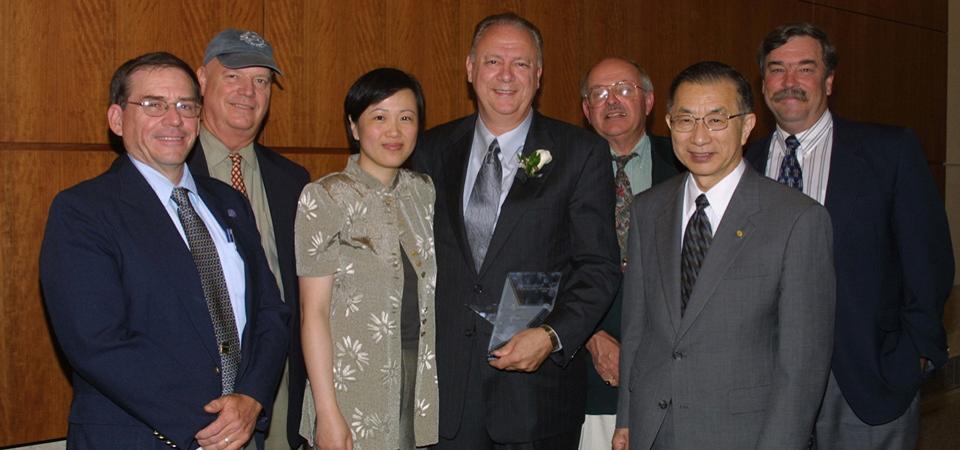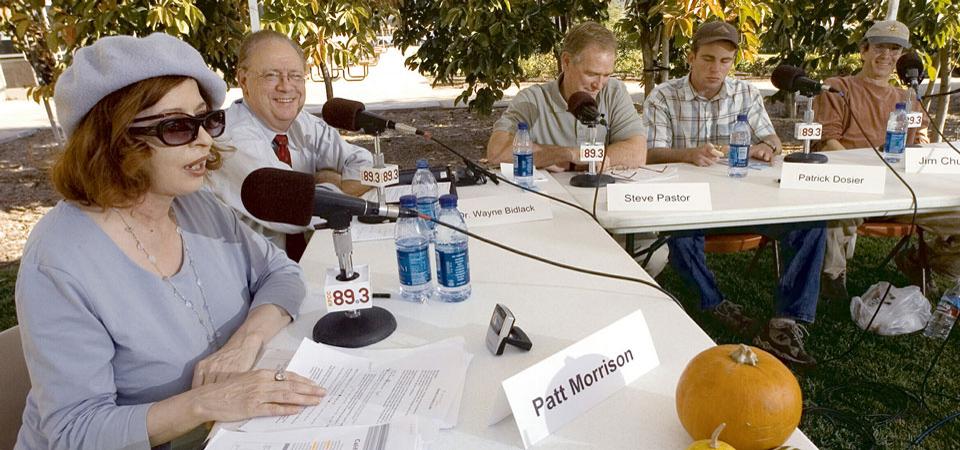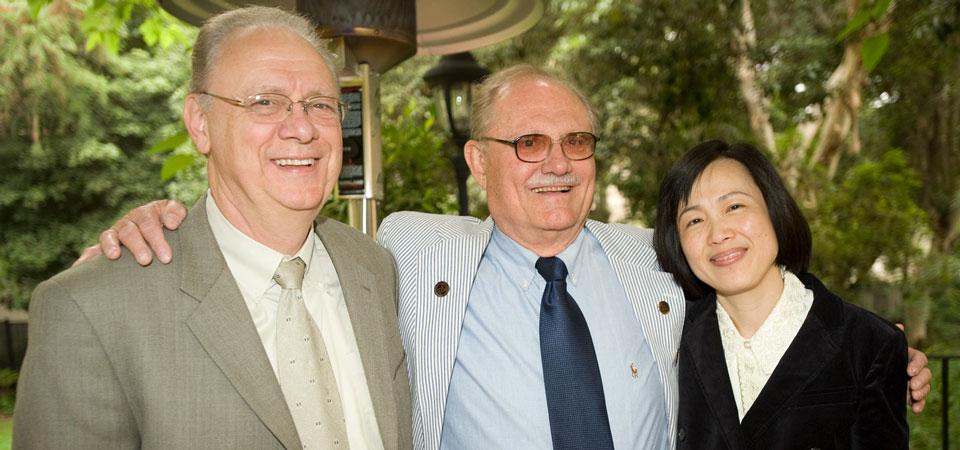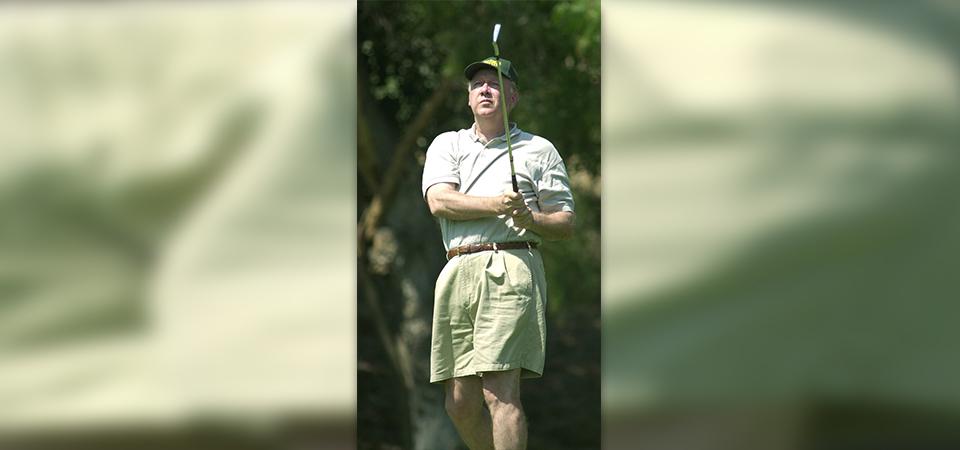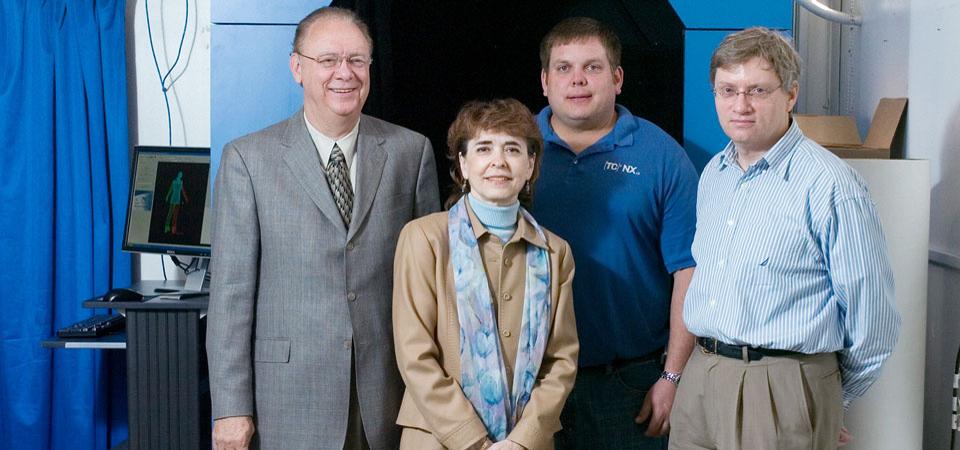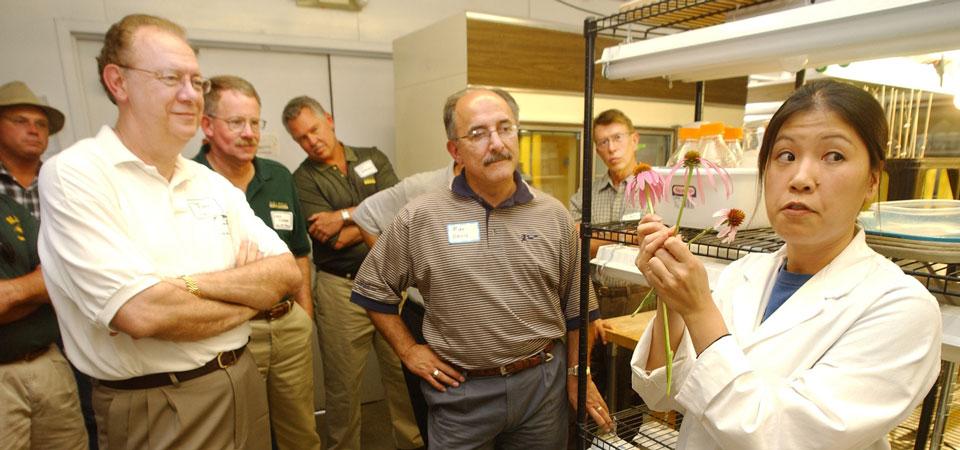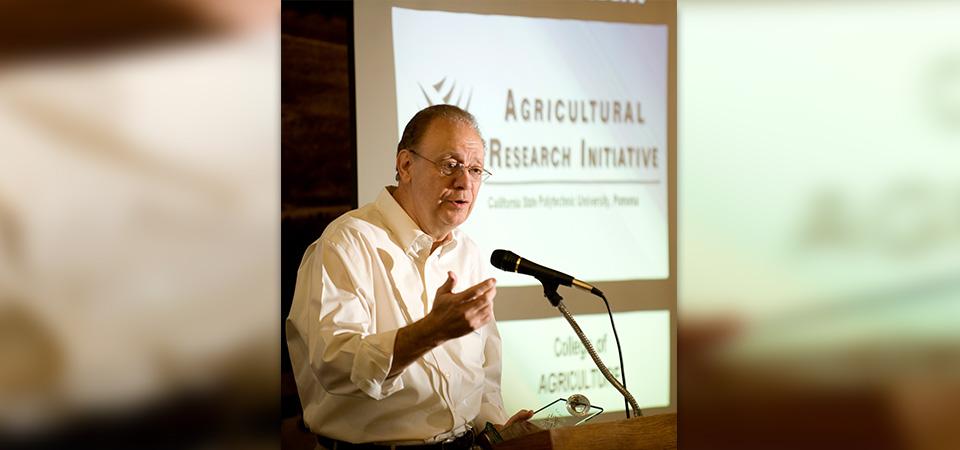In Memoriam: Wayne Bidlack
Slideshow
This slideshow contains 9 slides that will change every 8 seconds. The first button is to play and pause the slideshow, followed by buttons to go to the previous slide, next slide, or choose individual slides.
Wayne Bidlack, who served as dean of the College of Agriculture during a period of great change from 1995 to 2007, died Nov. 2.
He was 74.
When Bidlack arrived at Cal Poly Pomona in 1995 from Iowa State University, the College of Agriculture had completed a strategic plan that called for shifting its focus to more urban agriculture applications. The plan also included eliminating or consolidating majors and adding others.
“Wayne was hired to make this all happen, and it was a very difficult task,” said Professor Emeritus Jean Gipe, who helped found the apparel merchandising and management department and also served as
Bidlack is survived by his wife, Wei, a lecturer in the Department of Animal & Veterinary Sciences and campus point person for the Cal Poly Pomona Agricultural Research Institute program on campus.
A memorial service will be held at noon on Wednesday, Dec. 12 at the Church of Our Heritage, Forest Lawn Covina Hills. In lieu of flowers, donations may be made to the Wayne Bidlack College of Agriculture Scholarship Fund. Checks can be made out to the Cal Poly Pomona Foundation with a notation for the Bidlack scholarship fund and mailed to the Huntley College of Agriculture dean’s office, 3801 W. Temple Ave., Pomona, CA 91768.
Major Changes
During Bidlack’s tenure as dean, the college established the AGRIscapes Center, which would serve as a place to demonstrate sustainable agriculture. AGRIscapes included the Farm Store at Kellogg Ranch, classrooms, educational exhibits, a theater, a recycling education center, and office space. Greenhouses were added in 2007.
In addition, the college saw the addition of apparel merchandising and management, first as a baccalaureate program and then as its own department in 2000 with Betty Tracy as its first chair. It also phased out the home economics program as high schools eliminated similar programs.
Other programs were developed during Bidlack’s tenure, including the food science and technology baccalaureate in 1999; the animal health science baccalaureate in 2004; and the Culinology emphasis in 2006. The college also began leasing 1,000 acres around the California Institution for Men in Chino to farm and support instruction in 2003 and planted vineyards on campus for winemaking.
Financial Challenges
These changes came during a period when state support for the California State University system began to diminish. During Bidlack’s tenure, the college faced several consecutive years of budgets cuts and was forced to eliminate faculty lines.
But that didn’t stop Bidlack from trying to move the college forward. He set a goal for each department to establish its own advisory board of alumni and industry figures to help generate support for academic programs.
Bidlack also championed the college in fundraising efforts.
“He was always waving the flag. He had a great story to tell,” said Michelle Stoddard, who was the college’s development director from 2004 to 2007. “He represented the students so wonderfully.”
Research Supporter
As dean, Bidlack was a strong advocate of faculty conducting research.
Animal & Veterinary Sciences Professor Shelton Murinda, whom Bidlack had hired, called the dean a mentor who helped him establish the Center for Antimicrobial Research & Food Safety in 1998.
“The center enabled me to develop numerous successful research and consulting collaborations, including teacher of biotechnology classes, as well as providing students with opportunities to conduct research with first-class tools,” said Murinda, who is now the chair of the Department of Animal & Veterinary Sciences.
When Murinda wanted to conduct research with dairy cows, Bidlack drove with him to meet dairy council officials in Chino.
The college’s research efforts were bolstered in 1999 when the state of California allocated $5 million to create the CSU’s Agricultural Research Institute (ARI). The agricultural colleges at Cal Poly Pomona, Cal Poly San Luis Obispo, Fresno State, and Chico State were the charter members.
David Still, who was hired as a plant science professor during Bidlack’s tenure and currently serves as ARI’s executive director, credited Bidlack for being instrumental in establishing the institute and making sure it was based on good science.
“Wayne had a sharp and critical scientific mind that was good at synthesizing information and identifying areas in science that had the potential to be impactful,” Still said.
For example, Cal Poly Pomona and UCLA’s medical school were working together and trying to obtain National Institutes of Health funding to create a center that researched botanical dietary supplements. Bidlack invited Still to work on the grant proposal and to write it up.
“It was Wayne that came up with the idea to include an ag core to the proposal, and his connection with the principal investigator at UCLA that allowed us to win the grant over the other universities that we competed against,” Still said. “I did not know the medical guys at UCLA, and I was not working on botanicals used in medicine. Wayne facilitated the whole thing.”
Bidlack also mentored many of the faculty.
Professor Bonny Burns-Whitmore started at Cal Poly Pomona as a lecturer in the Department of Food, Nutrition, and Consumer Science the same day Bidlack started as dean. She credits him with involving her in research immediately and changing her life for the better.
“Wayne, along with the department and department chair, strongly suggested – OK, more than strongly suggested – that I go back to school and earn my doctorate,” Burns-Whitmore said. “Wayne recommended me for – and I received – the Chancellor’s Doctoral Incentive Program Scholarship, which provided $30,000 in support.”
After Bidlack stepped down as dean, he worked in an office next to Burns-Whitmore.
“We had many intellectual and student research planning conversations during those times. I miss having those conversations and his wonderful, colorful stories,” she said. “He will be missed by many, many people, especially his students. He cared about them, and it showed.”
Background & Honors
Bidlack began his academic career in 1974 as an assistant professor of pharmacology and nutrition at the USC School of Medicine. During his 18 years there, he also served as assistant dean of student affairs and professor, vice chair and interim chair of the Department of Pharmacology and Nutrition.
At Iowa State, he served as chair and professor of the Department of Food Science and Human Nutrition and the director of the Center for Designing Food to Improve Nutrition.
His research interests integrated the general areas of nutrition, biochemistry, pharmacology
His passion for science and education were evident through his volunteer service and leadership in a number of organizations, including the Institute of Food Technologists, American Society of Nutrition, California Agricultural Leadership Foundation, the International Life Sciences Institute, and the American Society for Pharmacology and Experimental Therapeutics.
In 2002, Bidlack was selected as one of five honorees from throughout the California State University system for the Wang Family Excellence Award, which recognizes faculty and administrators who have distinguished themselves in their academic disciplines. He donated the $20,000 award to the college’s endowment fund.
In 2006, Gov. Arnold Schwarzenegger appointed Bidlack to a four-year term representing the California State University system on the state Board of Food and Agriculture. The 15-member board advises the governor and the California secretary of food and agriculture on consumer needs and agricultural issues.
Bidlack decided to step down as dean the following year. During his tenure, enrollment in the college had increased 40 percent, with apparel merchandising and management, animal health science, and animal science growing rapidly.
Teacher and Mentor
The former dean resumed teaching as a faculty member in the Department of Human Nutrition & Food Science. He continued to teach through Winter 2015.
Although he was no longer dean, Bidlack continued to be a mentor to many, especially students.
Hilary Wu, a lecturer
“He patiently worked with me and explained the process to help me understand,” Wu said.
Bidlack would send students individual emails after they had made presentations to encourage them and identify areas for future improvement – a practice that Wu now employs with her students.
Andy Reynaga was impressed with Bidlack’s knowledge from the very first lecture he gave and got to know the professor in regular after-class meetings, where they bonded by talking about everything from coursework to life. He kept in touch with Bidlack even after the professor had retired.
“‘Dr. Bidlack, I’m sorry, but I’m not as smart as you think or want me to be,’ I would tell him constantly. He would incessantly retaliate with, ‘Neither am I,’” Reynaga said. “To which we would always laugh. I found it humorous for a brilliant man to be afraid to call himself a brilliant man. … He was more to me than just a mentor or teacher. He was a dear friend.”

